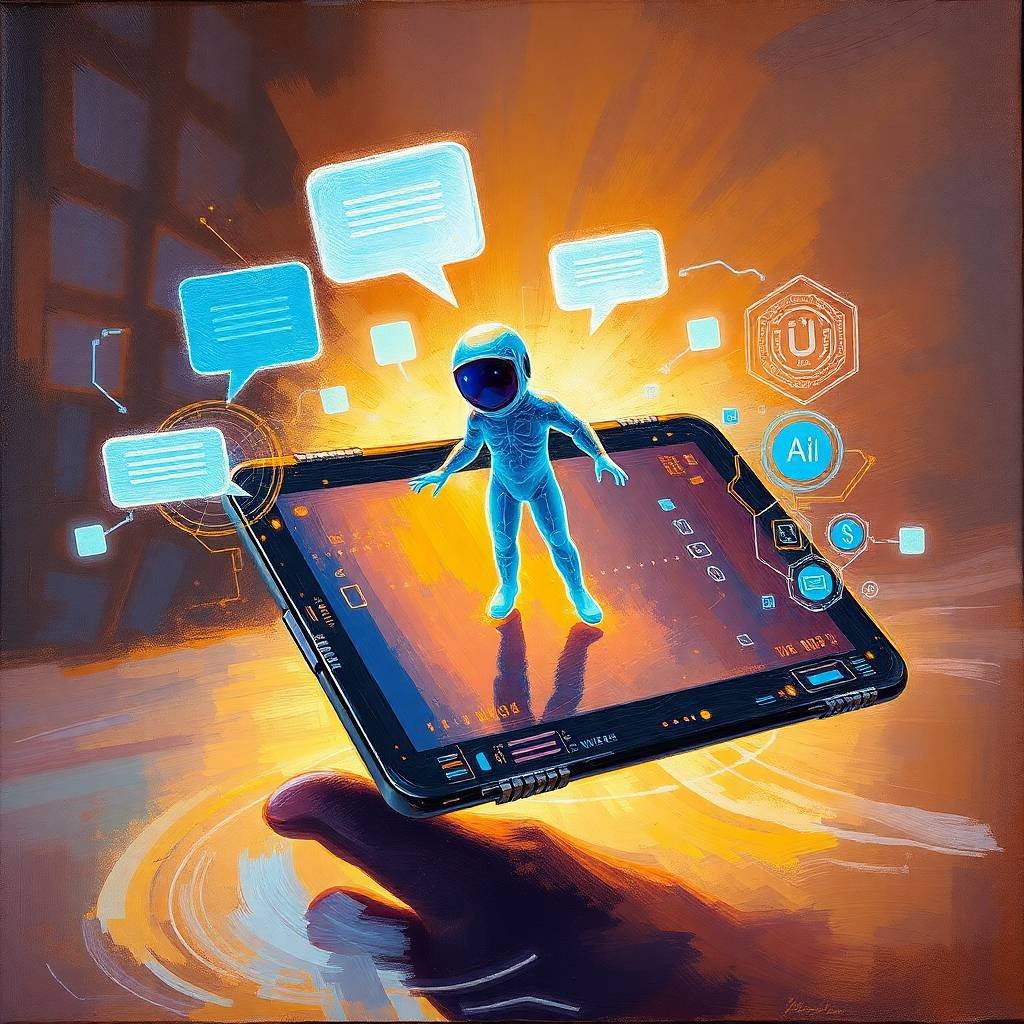Introduction
In a world where technology is evolving at an unprecedented pace, Artificial Intelligence (AI) stands out as a transformative force in the realm of digital storytelling. Gone are the days when storytelling was confined to the imagination of human creators alone. Today, AI is not only assisting but also enhancing the creative process, opening up new dimensions in how stories are crafted and experienced.
From generating complex narratives to refining character development, AI is pushing the boundaries of creativity and innovation.
The Evolution of Storytelling
From Oral Traditions to Digital Narratives
Storytelling has been a fundamental form of human expression since time immemorial. Starting with oral traditions, stories were passed down through generations, evolving with each retelling. As technology advanced, so did the mediums of storytelling—from the written word to film, and now, to digital platforms that offer immersive experiences.
The Role of AI in Modern Storytelling
In the digital age, AI is becoming a catalyst for change, bridging the gap between traditional storytelling and modern digital narratives. AI algorithms can analyze vast amounts of data to predict storytelling trends, assist in content generation, and even create entirely new genres of interactive narratives. With these capabilities, AI is not just a tool but a partner in the creative process, allowing storytellers to explore uncharted territories.
Benefits of AI in Storytelling
Enhanced Creativity and Efficiency
AI is revolutionizing the creative process by providing writers and creators with innovative tools that boost creativity and streamline production. With AI-driven platforms, creators can generate ideas, develop plots, and refine scripts faster than ever before. These tools help overcome writer’s block and provide new perspectives, enhancing the storytelling process.
Personalized and Interactive Experiences
One of the most exciting advancements AI brings to digital storytelling is the ability to create personalized and interactive experiences tailored to individual audience preferences. AI algorithms can analyze user data to customize storylines, making each experience unique and engaging. This level of personalization not only captivates audiences but also fosters a deeper connection with the narrative.
Challenges and Ethical Considerations
Balancing Creativity and Automation
While AI offers numerous benefits, it also presents the challenge of balancing automation with human creativity. There’s a risk that over-reliance on AI could stifle originality, as algorithms might favor patterns and predictability over novel ideas. Maintaining a harmonious relationship between AI tools and human creativity is crucial to preserving the essence of storytelling.
Ethical Implications
The integration of AI in storytelling raises significant ethical concerns. Issues such as data privacy and the ownership of AI-generated content are at the forefront of this discussion. It’s essential to establish ethical guidelines to ensure that AI is used responsibly, protecting both creators and audiences from potential misuse. As AI continues to evolve, so too must our understanding of its ethical implications in the realm of storytelling.
The Future of AI in Digital Storytelling
As AI technology continues to advance, its role in digital storytelling is poised to expand even further. We can anticipate a future where AI not only assists in the creation process but also becomes a collaborative partner, enabling stories that were previously unimaginable. Innovations in machine learning may lead to more sophisticated and emotionally resonant narratives, while the integration of virtual and augmented reality could offer immersive storytelling experiences like never before.
The potential for AI to transform the landscape of storytelling is vast, offering creators new tools to push the boundaries of their imagination. As we embrace these technological advancements, the key will be to harness AI in a way that complements and enhances human creativity, ensuring that the heart of storytelling remains vibrant and meaningful.
Conclusion
The integration of AI into digital storytelling heralds a new chapter in the art of narrative creation. While AI offers revolutionary tools that enhance creativity and efficiency, it also poses challenges that require careful navigation. The ethical implications and the need for balancing automation with human creativity are critical considerations as we move forward.
Despite these challenges, the potential benefits of AI in storytelling are immense. As technology continues to evolve, AI will likely play an even more prominent role, offering unprecedented opportunities for personalized and interactive storytelling experiences. By embracing AI responsibly, we can open exciting new pathways for storytellers and audiences to engage with narratives in ways we have only begun to imagine.
In this era of rapid technological advancement, the future of storytelling is bright and full of potential, with AI as a powerful ally in crafting the stories of tomorrow.

